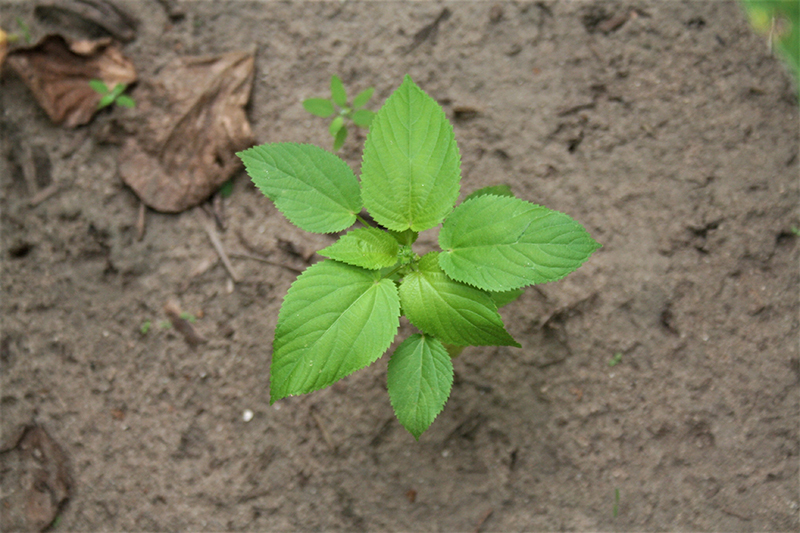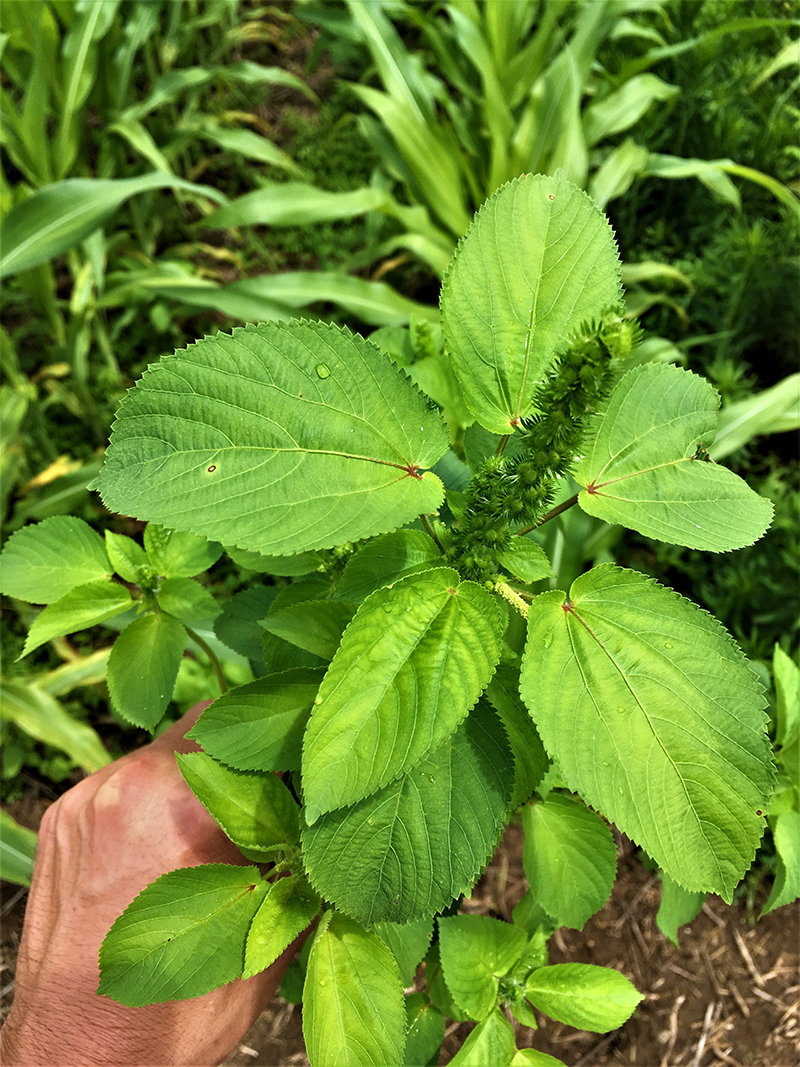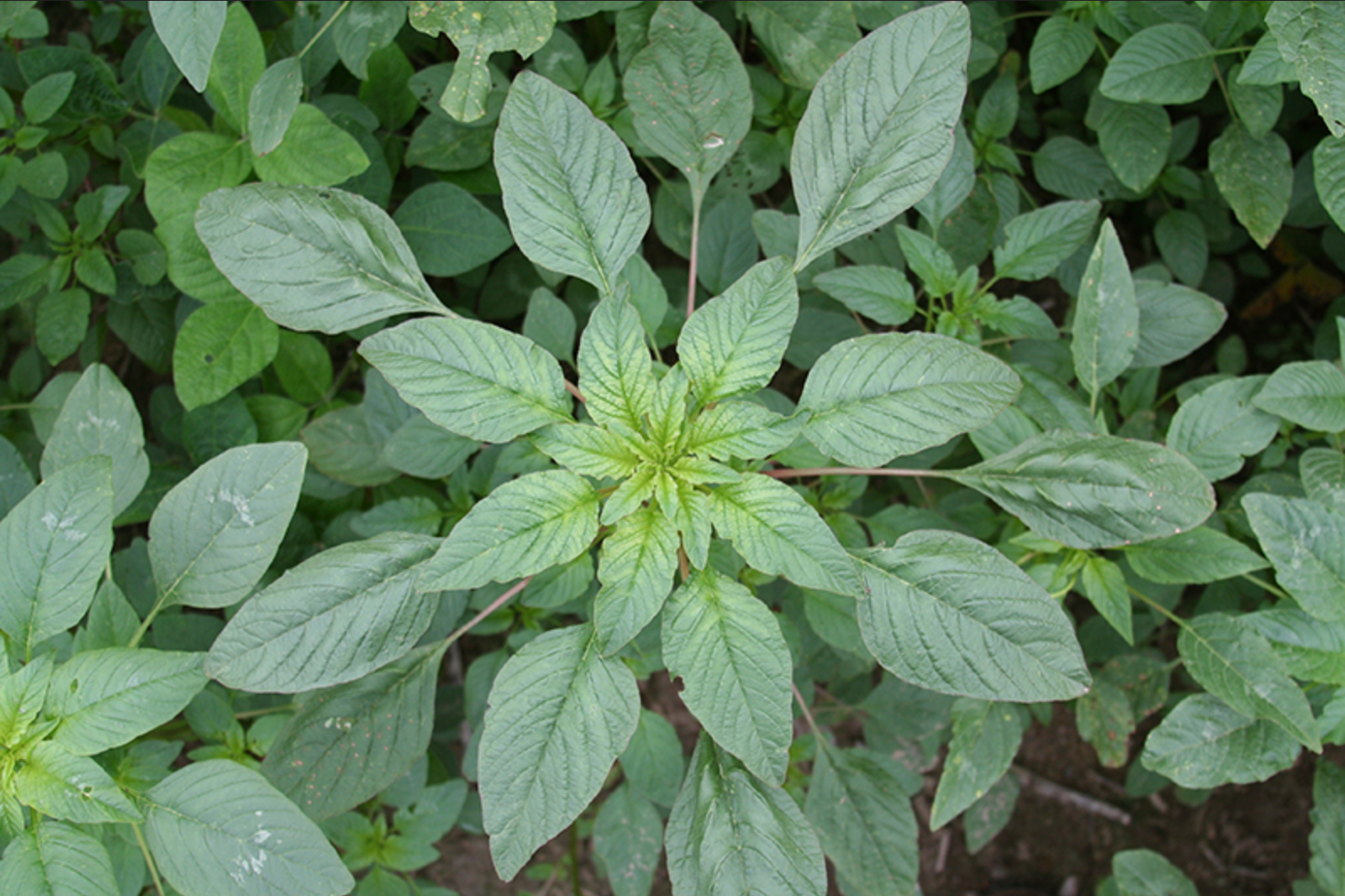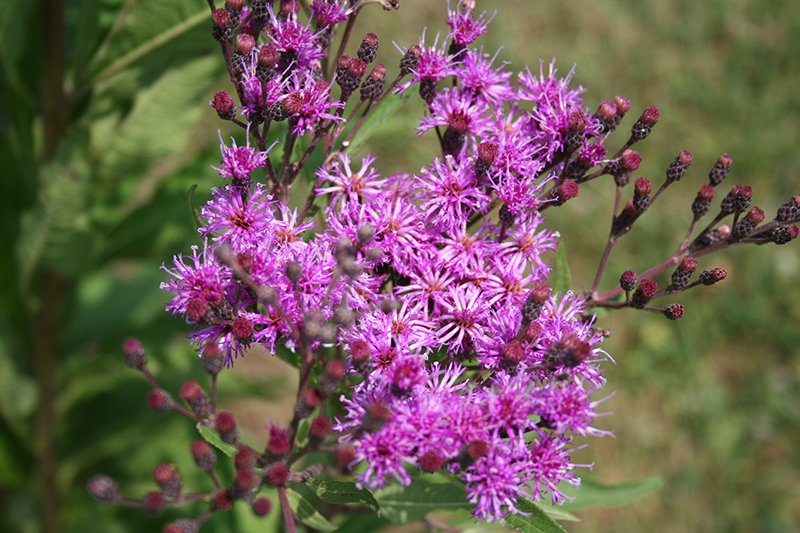Picture of the week
July 10, 2023
Hophornbeam Copperleaf (Acalypha ostryifolia)
Marcelo Zimmer, Weed Science Program Specialist
Department of Botany and Plant Pathology, Purdue University
Hophornbeam copperleaf is a weed that has become more prevalent in Indiana over the last decade. Also referred to as three seeded mercury, hophornbeam copperleaf is native to the United States, though historically has remained primarily in the southeastern states. Purdue Weed Scientists have noticed a rise in its prevalence over the past ten years, coincidently along with the rise in Palmer amaranth (Amaranthus palmeri) confirmations, another weed historically found in the southeast United States.
This weed has likely made its journey northward on similar modes of transportation as Palmer amaranth and is often found in the same fields as Palmer. Hophornbeam copperleaf has an extended emergence pattern from June through September that can help it avoid typical herbicide applications in corn and soybean. Although as it often occurs in the same fields as Palmer it is easily controlled by the high input management tactics used to control the much more aggressive Palmer plants. To this point hophornbeam copperleaf has not become a major agronomic weed in Indiana.
Click image to enlarge
Hophornbeam copperleaf is a member of the spurge family and is unique in that it does not exude milky sap from its flesh when broken like the other members of this family. The weed can often be confused with prickly sida, although it has a couple of distinguishing characteristics. Hophornbeam copperleaf can be identified by its sharply and finely serrated leaf margins that can be compared to a saw blade. It often has a red tinge or dot at the leaf base where the petiole connects to the leaf blade. The leaves are also much wider at the apex than prickly sida lending to a more oval shape than the lance like leaves of prickly sida.
See these other articles by Marcelo Zimmer





